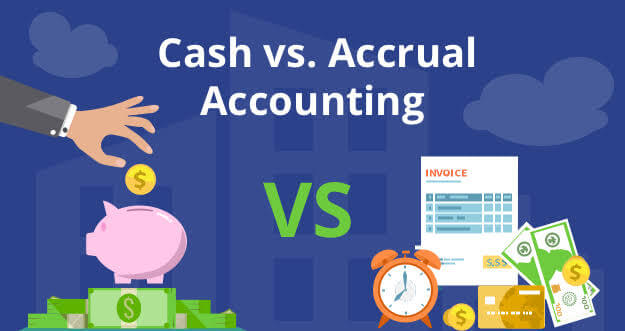What Is Accounting?The practice of recording a business's monetary operations is known as accounting. These transactions are collated, investigated, and submitted to oversight agencies, regulatory authorities, and tax-collecting agencies as part of the financial process. Financial statements are used in accounting to summarise a company's operations, financial situation, and cash flows.  Throughout history, accounting has taken on many shapes and levels of expertise. This method was established in medieval Europe, notably in Venice. Generally, financial statements are presented in accordance with established accounting principles and are audited by accounting companies. How does Accounting work?Accounting represents one of the most critical components of almost every business. Larger organizations may have extensive finance sections with numerous employees, while a bookkeeper or accountant may manage smaller enterprises individually. The accounting information, which summarises a sizable organization's operations, financial situation, and working capital during a specific period, are precise and compressed reports based on hundreds of separate financial transactions. As a result, all professional accounting certifications result from lengthy academic requirements, challenging tests, and at least some relevant real-world accounting experience. History of Accounting Accounting is hundreds of years old from early human civilization. There is evidence of early types of bookkeeping in ancient Iran, as well as initial auditing systems by the early Egyptians and Babylonians. Furthermore, the stages of development of accounting originate from prehistoric Mesopotamia and are intimately tied to advancements in writing, counting, and money. In the Jewish communities of the early medieval Middle East, double-entry bookkeeping was invented. It was then improved upon in the medieval European continent. Financial accountancy and management accounting emerged with the growth of joint-stock enterprises. The nineteenth century saw the beginning of accounting becoming a formalized profession, with the Institute of Chartered Accountants in England and Wales (ICAEW) being founded in 1880 due to the merger of local professional associations in England. Types of AccountingAccountants might need to keep track of transactions or deal with certain data sets in different ways for different fields. This enables the division of accounting into several broad groups. Some major types of accounting are as follows: Financial AccountingFinancial accounting strongly emphasizes communicating information about a business to external entities, including shareholders and creditors. The broad agreement between accountancy theory and practice gives rise to GAAP (Generally Accepted Accounting Principles), which evolves to satisfy decision-makers demands. Financial accounting produces past-focused reports on a yearly or quarterly basis, typically regarding the entire company. Also, the financial results are frequently released six to ten months after the end of the accounting period. The financial results of all transactions during an accounting cycle are comprehensively summarised in the accounting records, financial information, and cash flows statement. Most businesses have their financial accounts audited by a third-party CPA company once a year. Therefore, for one reason or another, most organizations will have financial audits each year. Management AccountingMeasurement, analysis, and reporting of data that might help managers accomplish organizational goals are the main goals of management accounting. Internal accounting measures and reporting are primarily concerned with cost-benefit analysis and are not required to follow widely accepted accounting rules. Management accounting reports typically incorporate financial and non-financial data, depending on whether they focus on a particular product or division. In managerial accounting, a report is created monthly or quarterly that a firm's management team may use to decide how to operate the business. Cost AccountingLike management accountant helps businesses make decisions about administration, cost accounting helps organizations make decisions about costing. Cost accounting considers every expenditure related to the production of a thing. This information is used by analysts, supervisors, and business owners to make cost projections for their goods. Money is seen as an economical ingredient in output in cost accounting, but it is seen as a gauge of a firm's economic success in financial accounting. Introduction to AuditingIn the accounting framework, auditing is the "objective study and assessment of the financial accounts of a business". It is the confirmation of claims made by others regarding a payout. In other terms, it is a methodical, typical professional service. An unbiased judgment on the financial statements is intended to be expressed or disclaimed during an audit of the financial statements. According to generally accepted accounting standards and "in all relevant aspects," the auditor gives an independent judgment on the impartiality with which the financial results depict the financial condition, operating performance, and cash flows of a business. Identifying instances when generally accepted accounting standards have not been regularly followed is another responsibility of an auditor. Accounting Information SystemA component of a company's information system that processes accounting data is called an accounting information system. Several organizations utilize such information systems powered by artificial intelligence (AI). Fraud detection in the banking and financial sector also employs AI. For customer support in the retail sector, AI is used. Cybersecurity firms also employ AI. However, utilizing modelling and statistics often requires computer hardware and software as well. Accounting with computer-based software has helped to streamline many accounting procedures. Large organizations frequently employ an enterprise resource planning (ERP) system, which offers a complete, centralized, integrated source of information that businesses can use to manage all key business activities, from buying to manufacturing to human resources. These systems can be deployed as software on particular machines or local servers, a practice known as on-premise, and made available on demand through application or browser. The Accounting ProfessionThe "Big Four" is a significant part of the accounting profession. These big businesses comprise the public accounting sector, which often guides financial and tax accounting, along with several other smaller businesses. Several relevant job titles in accounting are as follows:
The Accounting RulesIn most circumstances, accountants in the United States prepare financial statements by generally accepted accounting principles (GAAP). Its fundamentals are based on double-entry accounting, in which each accounting transaction is recorded as a debit and a credit in two general ledger accounts that will eventually roll up into the income statement and balance sheets. The International Financial Reporting Standards (IFRS), under the International Accounting Standards Board's control, are also utilized in many nations. According to the rules established by the firm's jurisdiction, tax accounts may also rely on state or local taxes. Foreign corporations must comply with tax laws in the countries where they are required to file returns. The Accounting CycleFinancial accountants frequently operate in a periodic environment where the same procedures are carried out consecutively and continuously over each reporting period. The accounting cycle includes several operations and entails gathering raw transaction records, entering them into an accounting information system, and producing topical and precise financial statements. The steps of the accounting process are as follows:
Cash Method vs Accrual Method of Accounting The two primary sets of rules that financial accounts may follow are as follows. The initial one, the basis of accounting using accruals, has previously been discussed. According to this rule, public firms are required to follow certain rules & regulations, which were developed by GAAP and IFRS. This rule mainly applies to larger enterprises. The second set of recommendations follows the accounting method based on cash. According to the cash technique, the transactions must only be recorded once money has changed hands (which means the transaction has been done and cash has been given). Due to its simplicity, this accounting method is widely used by small firms or organizations. Suppose a company uses credit to buy $1,000 worth of goods. In 30 days, the inventory payment must be made. In this case, there will be the following cases:
Why is Accounting important?Accounting is essential for business development. It is easier for a firm to use forecasting to make wise financial decisions when knowing how the business functions. Investors usually seek (often audited) financial documents prior to private investment in order to evaluate the overall viability of the firm. Banks and other lending institutions frequently demand financial statements compliant with accounting laws as part of the underwriting and review procedure for granting a loan. Accounting is required to get funding. Moreover, a business could consent to provide its clients credit. With accounting, a business would find it easier to keep a record of who owes it revenue and when that money is due. Accounting may be required for many purposes. Public firms are required to release IFRS- or GAAP-compliant financial statements consistently. If a company does not have the required financial records, the exchange may revoke the listing of the company. If the tax accounting of a company is adapted or modified for any purpose against the rules, it runs the risk of being penalized or fined. Example of AccountingAssume a company sends a statement to one of its customers to demonstrate double-entry bookkeeping. When employing the double-entry approach, an accountant enters a debit for accounts receivables, which affects the financial statement, and credit for sales revenue, which affects the income statement. The accountant deducts cash and funds accounts receivables when a user pays an invoice. Double-entry accounting is sometimes called "balancing the budget" since all financial accounts must match. If the records don't match, the accountant knows there must be an issue in the ledger accounts. What skills are required for Accounting?A wide range of backgrounds is represented among accountants. However, paying attention to detail is essential to accounting since it allows you to spot and fix even the smallest mistakes or abnormalities in a company's financial records. Logical thought is also essential for issue-solving. Despite the widespread adoption of computers, arithmetic skills are as valuable and just as important now as they were in earlier generations. Why is Accounting important for investors?Modern financial markets are built on the work done by accountants. Without accounting, business executives wouldn't have the transparency they need to manage risks or plan initiatives, and investors wouldn't be able to depend on timely, accurate financial information. Additionally, regulators rely on accountants for crucial tasks, including offering auditors' comments on corporations' yearly 10-K reports. In conclusion, accounting, though occasionally disregarded, is necessary for the efficient operation of contemporary finance. Special ConsiderationsAccountants frequently use software to facilitate their work. Larger businesses sometimes require far more complex solutions for their accounting purposes. They may require add-on components and in-place software products. Large accounting systems usually include tools and services from Sage, Oracle, and NetSuite. |